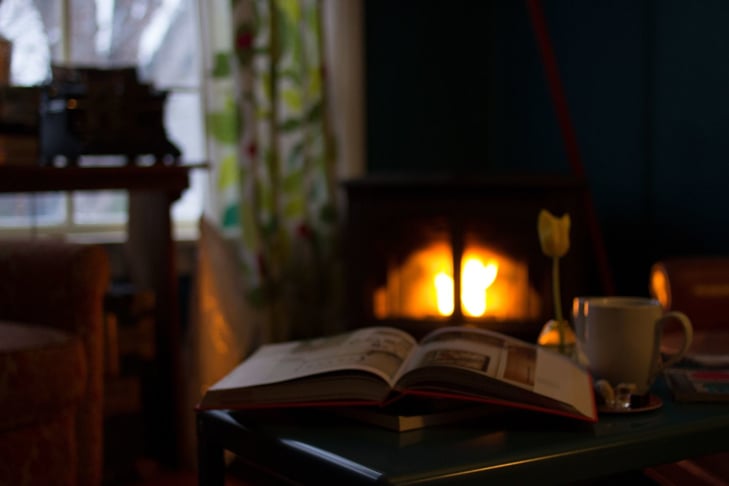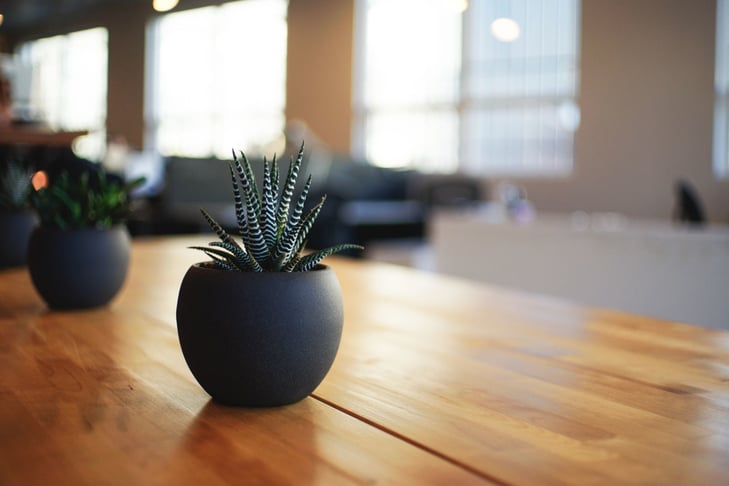Many people in Cincinnati provide full-time care, in their own homes, for loved ones with Alzheimer’s disease and dementia. For some, it’s a labor of love. For others, it’s a necessary cost-saving measure.
For people with Alzheimer’s dementia, aging at home can be a bit tricky. Alzheimer’s not only robs people of their memories — it robs them of their mobility and their ability to orient to their surroundings.
Many people with Alzheimer’s or other forms dementia will wander, especially in the later stages of the disease. That puts them at great risk of becoming lost or incurring serious, fall-related injuries.
Luckily, there are simple steps you can take to mitigate wandering and reduce your senior relative’s chances of falling or otherwise becoming injured.
If you live with, or are frequently visited by, a loved one with Alzheimer's or age-related dementia, here's how you can make your home a safer, more friendly and welcoming place for them.
Increase the ambient lighting
Don’t keep those shades drawn. Open them up and let the sunshine in. Some experts on aging recommend increasing your home’s lighting level to reduce the risk of falls.
How so?
Many seniors — those with dementia and otherwise — have reduced visual acuity, compared to younger adults. Brightening things up can help an older person see potential obstacles and, in general, get around better.
Increasing the lighting, at least during the day, can also keep your loved one with dementia safer by helping him or her to maintain a normal sleep pattern.
View More: How Cincinnati Can Become a More Age-Inclusive City
Seniors with Alzheimer’s disease often exhibit restlessness and have difficulty falling asleep. Fatigue, in turn, can lead to behavioral issues (“sundowning”), reduced immunity to communicable diseases, muscle soreness and decreased ability to focus, especially later in the day.
If you increase the ambient light level in your home, and time your lights to coincide with sunrise and sunset, you can help your loved one to maintain a normal Circadian rhythm (the light-regulated bio-mechanism that regulates sleep patterns).
Remove trip hazards
Alzheimer’s disease and advanced dementia rob people of their fine motor control. Consequently, one of the hallmarks of the disease is a shuffling gait. A loved one with mid- to late-stage Alzheimer’s will scuff his or her feet on the floor while walking, so it’s imperative that you remove any and all obstacles.
If you have area rugs or throw rugs, roll them up and store them for the duration of your loved one’s time in your home. If you have slick, hardwood floors, install handrails in the corridors or consider laying in wall-to-wall carpeting. And, if there are bubbles in your carpet, have them professionally stretched or tacked down.
Tape down wires, hide them behind furniture or better yet, take them up entirely. Don’t leave phone chargers or power adaptors plugged in when you’re not using them — unplug them, roll up the wire and put it away.
Create a calm, soothing environment
Sights, sounds and smells that might not distract you or me can be completely overwhelming for people with Alzheimer’s or late-stage dementia, because the disease robs them of the ability to filter out sensory stimuli.
Removing distractions can help your loved one to maintain focus and reduce his or her stress level. Pay attention to surroundings: Keep TV and stereo volumes at a minimum, don’t let your dog incessantly bark or jump up and ask the kids to keep it down or play outside.
Seniors with dementia can’t always express how they’re feeling, so you’ll need to closely observe behaviors and proactively keep the peace.
Need more tips for making your home Alzheimer’s friendly?
Download our free Dementia Guidebook. In it, you’ll find advice that will help you to provide excellent, person-centered care for your senior loved one, critical information about community-based resources and tips for making your home safer.
With your help, we can achieve Laura Lamb’s goal of making Cincinnati one of the most age-inclusive and dementia-friendly cities in the nation.














